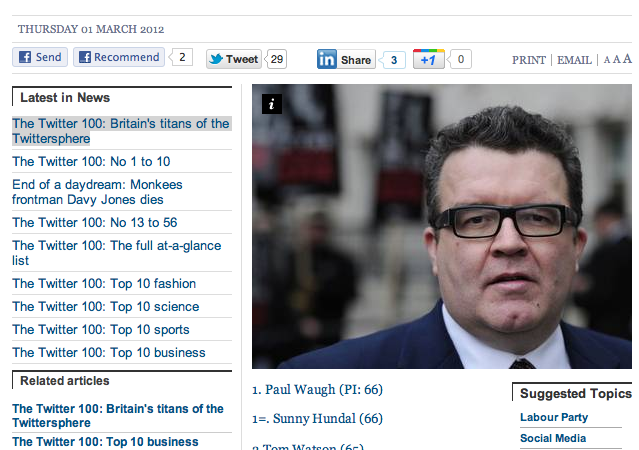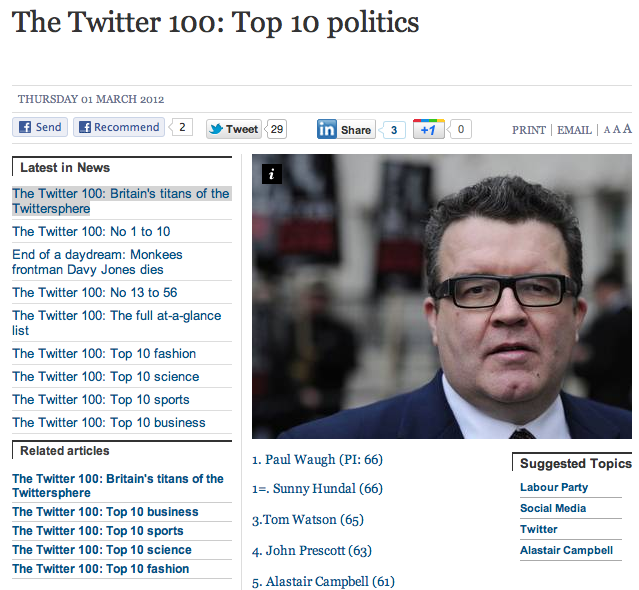The Indy’s Twitter Top 100 isn’t worth the screen space it’s written on

 The Independent has been creating a bit of a stir today with its “The Twitter 100: Britain’s titans of the Twittersphere“. Sunny Hundal was particularly happy that he ended up joint top of the Politics Top 10.
The Independent has been creating a bit of a stir today with its “The Twitter 100: Britain’s titans of the Twittersphere“. Sunny Hundal was particularly happy that he ended up joint top of the Politics Top 10.
The problem is that the methodology of this list is highly questionable.
Indy journalists seem to have scoured the Twittersphere, made a subjective list of people based in the UK they came across, and then run those individuals through PeerIndex, the social media ranking tool.
First, there is the issue of who to even include. Two notable absentees are Mark Ferguson of LabourList (PeerIndex: 52), and Will Straw (PeerIndex: 57) whose scores would see them comfortably into the Top 10 for politics. My own PeerIndex score is 55 – that would place me 8th, but the notion that makes me influential in UK politics – on Twitter or in general – is laughable.
This is due to an inherent deficiency with PeerIndex. It essentially measures the density of connections people generate in social media, Twitter in particular. It has no way to measure the influence of those people offline, and – hence by extension – the influence offline of the people they influence on Twitter. It also cannot incorporate into the measure where the influenced are located.
A similar study was also drawn to my attention this week – Economia tried to do the same for influencers in finance. Sony Kapoor was not on the list due to a low PeerIndex score, despite his tweets consisting mostly of expert exchange of views with top journalists of important newspapers such as the FT.
In short: take all of this with a very large pinch of salt!
@Azem – thanks for the reply. I perhaps should have said it more clearly – I don’t dispute the value of PeerIndex (and indeed have used it a few times to check things for projects). I just think there is rather a large question mark over who the Indy have (and have not!) included in their list
Jon
I wrote a blog post on this subject at http://blog.peerindex.com
Twitter is such a huge thing – as is social – that even pulling a list of 100 people would leave you with the top of the pie – and not a very interesting list.
What the Independent did was extremely brave and on the mark – to highlight how important Twitter is to contemporary debate; and to give space to take it seriously.
You are right there are limits with the approach – both in tracking offline influence (which we can do better at) and in targeting huge communities.
Where such groups can be directional and fun are when you look at smaller groups. For example, a group of UK MPs or political journalists – where the community is like with like and not drowned out by footballers and reality show winners.
Thanks for taking the time for writing – happy to collaborate with you or take feedback anytime
best
a